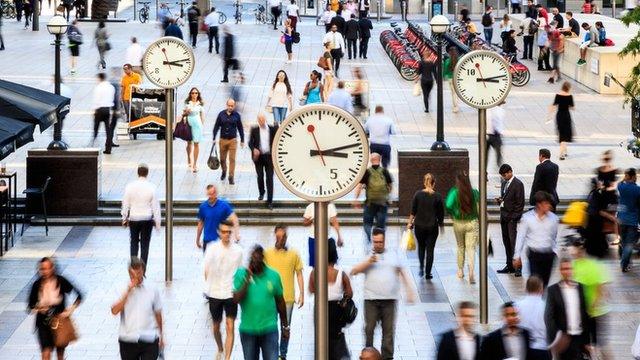Older women poorer after pension age change, says IFS
- Published
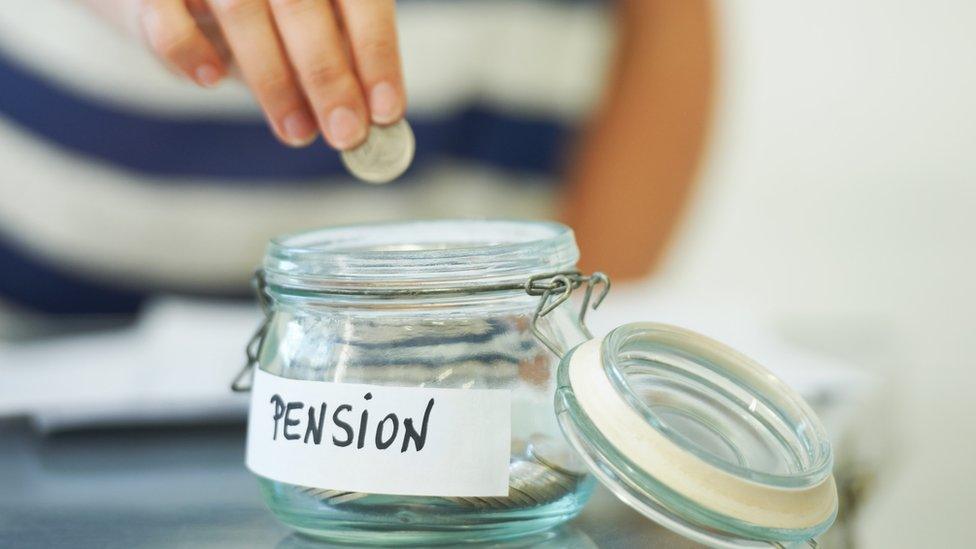
More than a million women in their early 60s have become poorer as a result of delays to their state pensions, according to a new study.
Researchers at the Institute for Fiscal Studies (IFS) found that, on average, household income of women aged between 60 and 62 was now £32 a week lower.
As a result poverty rates among that group have risen sharply, it said.
But the IFS also said the savings, and extra tax from working women, meant the state was £5.1bn a year better off.
Since 2010, women's state pension age (SPA) has been steadily raised by the government from age 60, in order to match men's SPA of 65 by 2018, with a further increase to 66 for both sexes by 2020.
'Inadequate consideration'
Public sector debt is £1.75tn and the government borrowed £46.2bn in the past financial year.
The government said its pensions policy was "fair and sustainable" and matched continuing rises in life expectancy.
However, the campaign group Waspi (Women Against State Pension Age Inequality) said the research was shocking.
"Once again, this shows that the government has implemented state pension age reforms without adequately considering the full impact of these changes on the women affected," said Waspi director, Jane Cowley.
Working longer
The IFS study showed that many women in the age group already affected by the pension change have continued working.
But the effect of waiting longer for their state pension has, on average, outweighed the gains made by those who have continued to earn a salary.
Thus the female 60 to 62 age group as a whole was earning an extra £2.5bn a year, an average of £44 per week.
But the same group has also lost £4.2bn in pension and other benefits per year, or £74 per week.
Jonathan Cribb, of the IFS, said the new policy was clearly putting pressure on the budgets of some households.
"The increased state pension age is boosting employment - and therefore earnings - of affected women but this is only partially offsetting reduced incomes from state pensions and other benefits," he said.
"Since both rich and poor women are losing out by, on average, roughly similar amounts the reform increases income poverty rates among households containing a woman who has reached age 60 but has not yet reached her state pension age."
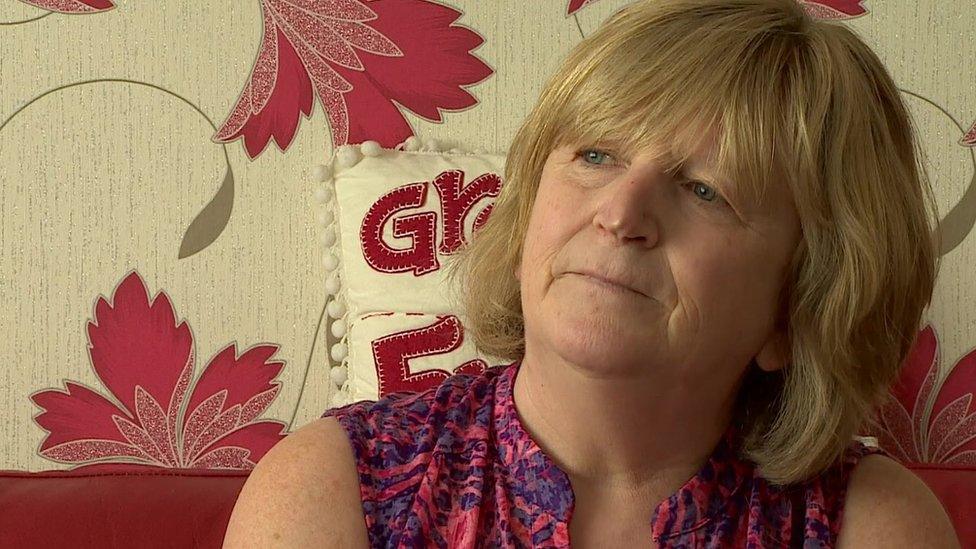
Shirley McLachlan says she needed to rely on family for financial help
Among those affected is Shirley McLachlan, from Aberdeen. The 61-year-old is not working owing to ill health and will not receive her state pension until she reaches the age of 66.
"I can't afford holidays. I had to give up my car and basically my life," she said.
She said she had been helped out my the kindness of family and friends, but she was buying "the cheapest, not the healthiest" items in the supermarket.
"I've got a bus pass - whoopie! - but it is the only thing I've got really, [as I'm] not getting my pension."
No material deprivation?
Looking at the worst affected individuals, the IFS calculated that absolute poverty rates - measured after housing costs - had increased from 15% of women aged between 60 and 62 to 21% of them.
It said there was no evidence of an increase in women experiencing "material deprivation" - that is, people saying the could not afford a range of important items.
Such families may have "smoothed" their spending over time, the researchers suggested.
Caroline Abrahams, at the charity Age UK, said the IFS figures were "extremely worrying".
But the changes have boosted the government finances.
The IFS said that the savings to the public purse had been boosted by the extra income tax and national insurance payments from those women continuing to work, which meant the government's total saving was now running at £5.1bn per year.
A spokesman for the Department for Work and Pensions said: "The decision to equalise and increase the state pension age is both fair and sustainable for future generations and in line with continuing rises in life expectancy.
"Women retiring today can still expect to receive the state pension for over 24.5 years on average - which is more than any generation before them and several years longer than men."
The long-standing policy of equalising women's state pension age with that of men, and then raising it for both groups, has become increasingly controversial.
The decision to equalise the SPA, external was first made back in 1995.
Many women who are being affected say they were never made aware of the changes, which have now come as a shock to them.
- Published19 July 2017
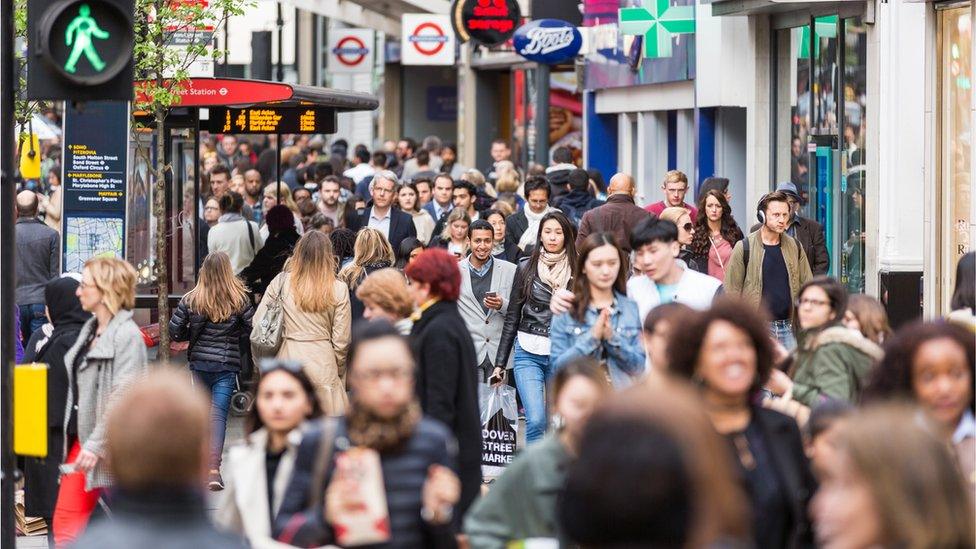
- Published19 July 2017
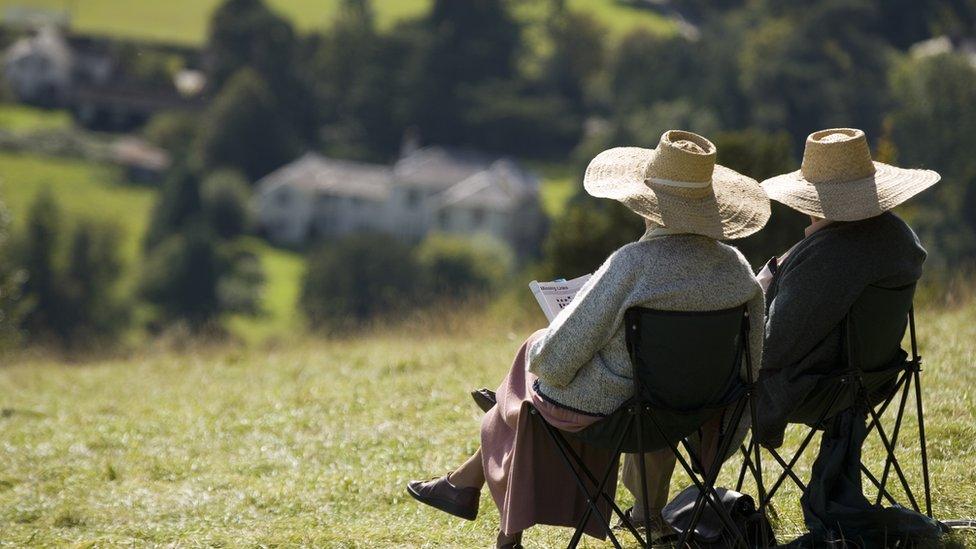
- Published30 May 2017
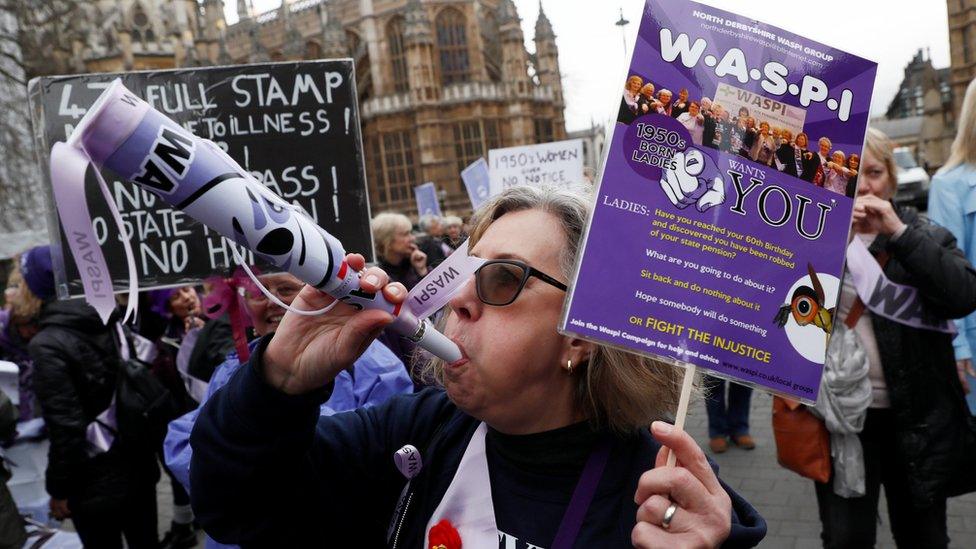
- Published6 April 2016

- Published23 March 2017
